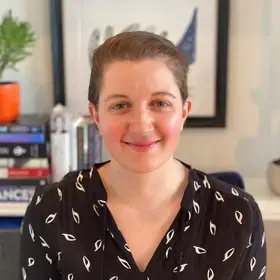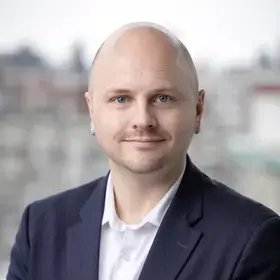Karin Silitonga is a full-time student in the M.S. in Strategic Communication program at Columbia University in New York City. She previously worked as a corporate communication lead at Nestlé in Jakarta. As part of the required course The Authentic Leader, students pitched blog entries detailing leadership principles and tactics based on the workshops, panels, and plenary discussions at the Winter Symposium hosted by the program earlier this semester. Students in The Authentic Leader study the theoretical underpinnings of leadership communication, examining empirical evidence as a guide for practice and learning different leadership styles and competencies. Silitonga’s submission, below, was selected for the Tomorrow’s Minds at Work Blog.
When I think of leadership, what comes to mind is the ability to influence and guide others toward a goal. My definition of an effective leader is framed in the context of a person’s impact on others. However, what I often overlook is the role of self-awareness. In reality, a person’s understanding of themselves is important to their success as a leader.
This was something I learned at the Winter Symposium during the workshop session titled “Pivoting to Public Service: Changing Careers for Social Impact.” Led by alumnus Dave DeLuca, director of Social Impact Partnerships at the Lede Company, the session helped me recognize how I can contribute to an organization and shape a purposeful career.
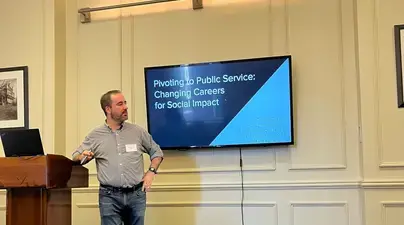
(Above) Dave DeLuca (’11SPS) leading the workshop session
Know Your What
Dave started the session with two important questions: The first was “How do I make positive social change?” The second: “Is it actually helpful?”
The former is a question that can only be answered once we have cultivated a strong
understanding of who we are and what value we bring as a professional. Therefore, he shared
several things we need to consider:
-
Skill sets and assets: What do I bring to the table that makes me a powerful agent of change?
-
Daily fuel: What day-to-day actions drive my engagement at work?
-
Quality of life: What are your long-term financial goals? In what ways do you have to manage stress and burnout?
By knowing our personality, traits, interests, and priorities, we can better identify
how to utilize those to bring change. Regarding leadership, this enables us not only to know
our natural leadership style but also to identify areas of growth.
Know Your Why
“The people who last in social change jobs are people who know themselves and have that
motivation as fuel.”
Dave highlighted the challenges that may come from pivoting to a career in the public sector. Some questions that can guide us:
-
What do I hope to achieve through my role?
-
Why is that important to me?
-
What specific causes, issues, or populations am I interested in working with?
I learned that being an impactful leader is not tied to a specific job title but is built
on what motivates us. Knowing our why will also strengthen our decision-making, because as leaders, we may need to make tough choices to achieve the goals at hand.
Know Your World
We need to know how what we bring to the table
can help address a need in our society. We need to understand the world we
are working in. This includes:
-
Understanding the different sectors we can contribute to, such as nonprofits/NGOs, government, and for-profits
-
Observing the current issues that are affecting our world
-
Acknowledging the nuances and complexities that exist, and having the agility to adjust accordingly
The bottom line: While self-awareness is critical, we do not live in a vacuum.
The Points of Light Civic Circle
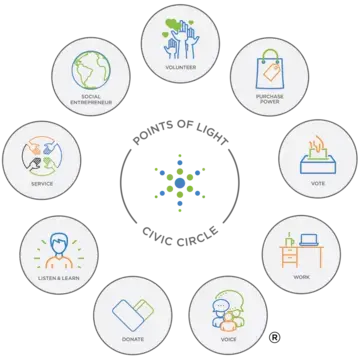
Referring to the Civic Circle, Dave closed the session by highlighting how professional choices are one way for us to demonstrate our ability to lead, take action for causes we care about, and live a civic life.
Hence, this session challenged me not only to reflect on a career for social impact but on my own understanding of who I am. Because by knowing the value that I bring, the causes that I consider important, and the needs that exist in the world, I can therefore act and lead with purpose.
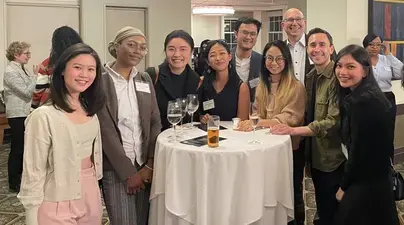
(Above) The author (far right) with peers at Columbia University’s Strategic Communication Winter Symposium
About the Program
The business world’s around-the-clock communications challenges are demanding a new level of strategic thinking. Columbia University’s Master of Science in Strategic Communication graduates emerge equipped with all the essential skills and tools for a successful career in a wide range of communication fields. The program is available in three formats for professionals of varying experience levels and locations: the Executive M.S. for experienced (6+ years) communication leaders (36 credits in 16 months for degree completion); Full-Time M.S. for early-career communication professionals and career-changers (36 credits in 12 to 16 months for degree completion); and Part-Time M.S. for working professionals looking for flexibility (36 credits in 24 months to three years for degree completion).
Application deadlines for fall 2023 enrollment are quickly approaching. Visit the admissions deadlines pages for your chosen format for dates: Executive M.S.; Full-Time M.S.; and Part-Time M.S.

